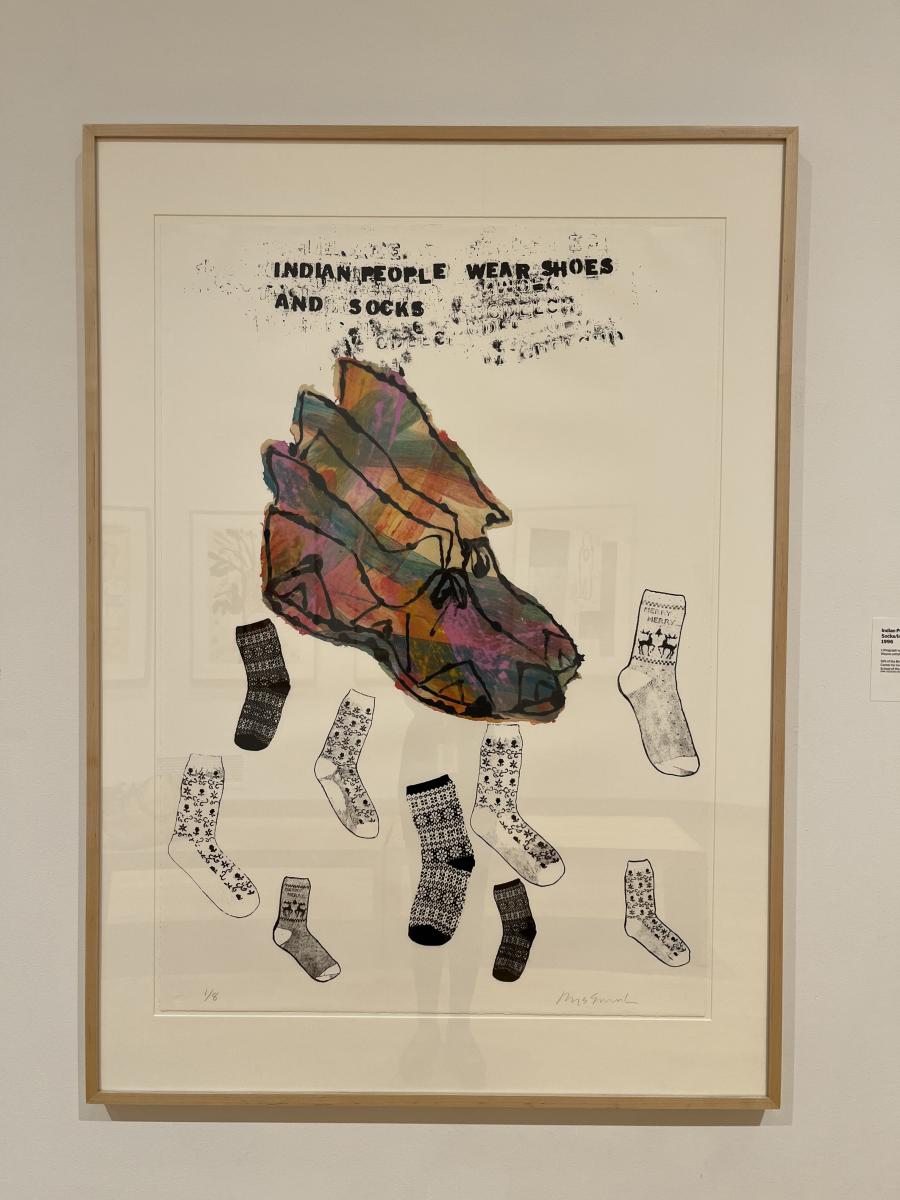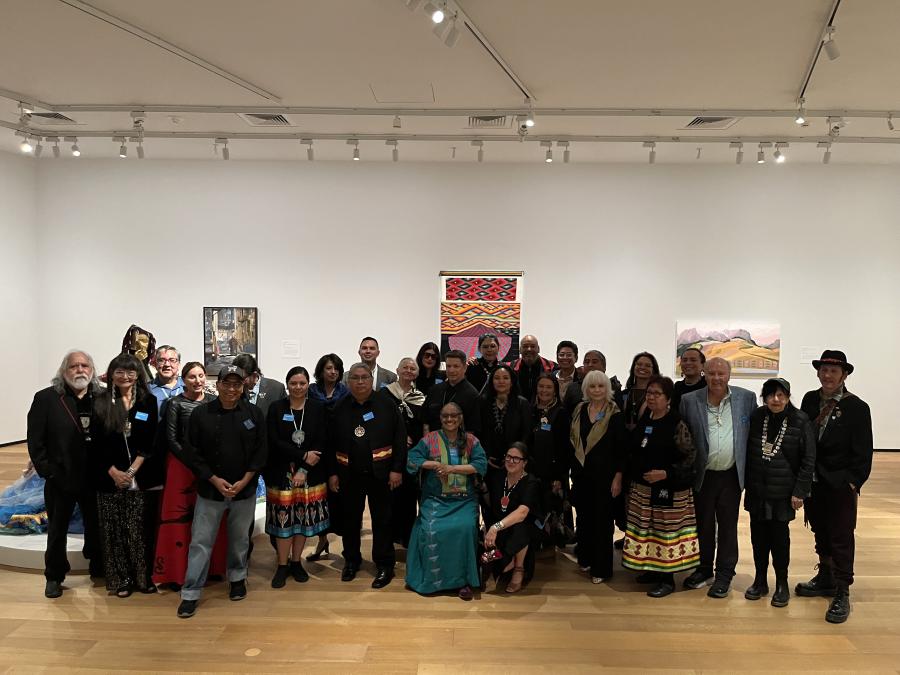The biggest surprise in George Bush’s State of Union speech in January may have been his acknowledgment—for the first time—that global warming was a serious issue. A month earlier the Environmental Protection Agency took the remarkable step of proposing that the polar bear be listed as a threatened species because of global warming in the Arctic. One might put Bush’s environmental enlightenment down as a sop to the Democrats’ new majority in Congress, but politicians of all stripes are now talking regularly about global warming and, increasingly, its disproportionate effect on the polar region. Much of the credit for that public discourse can be traced to one woman: Sheila Watt-Cloutier, an Inuit who has done more than perhaps anyone to put Arctic environment and global warming on the political map.
From 1995 to 2002 she was president of the Canadian chapter of the Inuit Circumpolar Conference, the international body that represents the Inuit of Canada, Greenland, Alaska, and the Russian Far East. In 2002 she was elected chair of the entire Inuit Circumpolar Conference. She was instrumental in the negotiations that led to the 2001 Stockholm Convention banning the generation and use of persistent organic pollutants that contaminate the Arctic food web, and for the past four years she has been traveling around the world raising awareness of the severe impacts of global warming on Arctic peoples. She is a passionate and articulate speaker who is all the more compelling for being indigenous: She lives with the issue, and when she speaks about the effects of global warming, she does it through the example of her own community.
Her tireless advocacy has been recognized in a number of international awards. She received the inaugural Global Environment Award from the World Association of Non-Governmental Organizations and the 2004 Aboriginal Achievement Award for Environment. In 2005, she was honored with the United Nations Champion of the Earth Award and the Sophie prize in Norway, as well as the inaugural Northern Medal given by the outgoing Governor General of Canada, Adrienne Clarkson. In late 2006 she received the Order of Canada—the highest honor the Canadian government can bestow—and, as this issue of Cultural Survival Quarterly went to press, we learned that she had just been nominated with Al Gore for the Nobel Peace Prize.
In December 2005, her work reached a political apotheosis when she initiated the world’s first international legal action on climate change. She and 62 Inuit hunters and elders filed a petition with the Inter-American Commission on Human Rights claiming that the emissions of greenhouse gases by the United States directly threatened the existence of Inuit culture, and thus violated their human rights. Claiming a link between cross-border environmental contamination and human rights is a particularly bold strategy, though it is rooted in solid scientific findings. One might, on that basis, have expected it to move to the top of the Inter-American Commission’s agenda, but instead the commission declined to consider it—a response that puzzled Watt-Cloutier.
“Here’s this human rights commission,” she says, “that has a very serious petition about an issue that is affecting the very right to existence of an entire people who depend upon the ice and snow that is melting so very quickly. I had not only expected that they would review our petition in depth, but I also thought that they would come north, as we had requested, to see for themselves the changes that are happening here in the Arctic. I thought they would hold hearings so they could hear directly from our hunters, our elders, and our women, who are signed on with me as fellow petitioners. But none of that has happened, and that’s the part that shocks and surprises and really upsets me. It’s almost dismissive of the issue.”
Then, just a day after Watt-Cloutier was nominated for the Nobel Prize, the Inter-American Commission partly reversed its earlier decision and announced that it would hold a one-hour hearing in Washington on March 1. The hearing gave Watt-Cloutier and her partners an opportunity to explain their claim of a connection between global warming and human rights. It is far from the full consideration of the petition that Watt-Cloutier was hoping for, but it does mean a foot in the door.
“The reality is,” she says, “that whether or not we win the petition, whether or not the declaration is declared, it’s a win, because we have used this tool, this instrument, to really put this issue on the map as a human rights issue. We blazed that trail. No one had ever made those kinds of connections before. It turned the heads of many around the world to take a look at what’s happening here in the Arctic to an entire people.”
Watt-Cloutier’s own life is an analog for what’s happened to her land and her people. She was born in Kuujjuaq, Nunavik, in northern Quebec, and was raised traditionally, on the ice, and never traveled by anything but dogsled until she was 10. At that point she was sent to boarding school and lost her language. And in the intervening years she has seen the increasing, debilitating effects of globalization and climate change.
“As Inuit,” she says, “we have the highest suicide rates in North America, especially for our young men. And we have lots of addiction and social problems that we are trying to grapple with. I have a grandson who’s nine and who’s growing up here in the middle of all this. I want him to keep hunting, because the hunting culture is not well understood or is misunderstood. It is a really powerful training ground for our young people. They not only learn the technical skills of the hunt, but also they are taught patience. It’s automatic in a hunting culture: While you’re out there waiting for the animals, you learn to become patient, and you learn to become courageous. You learn to be forthright about things, and you learn to have sound judgment about what to do in your life. Ultimately you learn to be wise about all kinds of choices, not only on the land. These are transferable skills that one would need, especially, in a transitioning culture such as ours. I know that many answers and solutions lie in the power of this wonderful resilient culture that we have.”
Watt-Cloutier says the resilience of the hunting culture is especially important in the face of the Arctic’s dramatic changes. “In this valley [on Frobisher Bay, Baffin Island, where she lives] it’s not as evident,” she says, “although we’ve had much later seasons, where the ice forms much later in the year and breaks up much earlier. But if you go a little further north, to the Cumberland Sound, it’s much more precarious. So hunters have learned to reroute themselves if things don’t freeze up on time or if the snow doesn’t fall as much as it used to. In fact, the conditions of the ice are more what we worry about, because what you see on the surface after it’s formed is not necessarily the case underneath. The ice forms differently now. There’s nowhere else in the world other than the Arctic where snow and ice represent mobility. It becomes our highways. But all the rules that we’ve had and all the knowledge that we’ve had traditionally are changing. It’s become very hard to pass down that traditional knowledge because things are changing so quickly.”
Watt-Cloutier is not daunted by these challenges, though. In fact, she says they spur her to greater effort. “It’s not personal when I launch a petition against the United States of America,” she says. “But it certainly is personal when we have to deal with toxins coming into the milk of our nursing mothers and they have to think twice about nursing their babies as a result of it. And it certainly is personal when my grandson is going to lose the very thing that I think he will have to hold onto when he’s influenced by all the suicides and so on that happen in our world. It’s a passion that I’m not easily going to give up on.”
In the meantime, Watt-Cloutier is working on a book about her life and the changes in the Arctic, which she hopes to finish by next year. And she already has the title: The Right to be Cold.



